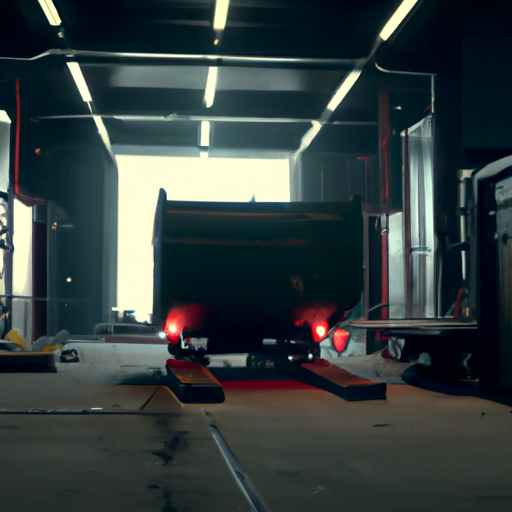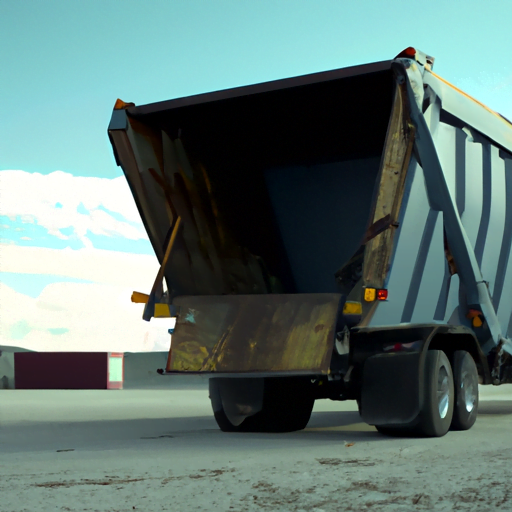-
Table of Contents
Renting Dump Trailers: What You Need to Know

Whether you’re a homeowner tackling a major landscaping project or a contractor working on a construction site, renting a dump trailer can be an essential tool for managing waste and debris. But before you sign on the dotted line, it’s important to understand the ins and outs of dump trailer rentals. In this comprehensive guide, we’ll cover everything you need to know about renting dump trailers, from choosing the right size and type to understanding the costs and legal requirements involved. So, let’s dive in!
Why Rent a Dump Trailer?
Dump trailers are versatile and efficient tools for hauling and disposing of various materials, such as construction debris, yard waste, and even household junk. Here are some key reasons why renting a dump trailer might be the right choice for your project:
- Convenience: Renting a dump trailer allows you to have a dedicated space for waste disposal, making it easier to keep your work area clean and organized.
- Efficiency: With a dump trailer, you can transport large amounts of waste in one trip, saving time and effort compared to making multiple trips with a pickup truck or other smaller vehicles.
- Cost-effectiveness: Depending on the size and duration of your project, renting a dump trailer can be more cost-effective than hiring a professional waste removal service or purchasing a trailer outright.
- Environmental responsibility: Proper disposal of waste materials is crucial for protecting the environment. Renting a dump trailer ensures that your waste is transported and disposed of in a responsible manner, in compliance with local regulations.
Choosing the Right Dump Trailer for Your Needs
When it comes to renting a dump trailer, one size does not fit all. There are several factors to consider when selecting the right trailer for your project:
1. Size and Capacity
Dump trailers come in various sizes, typically measured in cubic yards. Common sizes include 10, 12, 14, and 16 cubic yards. To determine the appropriate size for your needs, consider the volume and weight of the materials you’ll be hauling. For example, a 10-yard trailer might be suitable for a small landscaping project, while a 16-yard trailer would be better suited for a larger construction job.
2. Type of Materials
Consider the type of materials you’ll be hauling, as this can impact the type of dump trailer you’ll need. For example, if you’re disposing of heavy materials like concrete or dirt, you may need a heavy-duty trailer with reinforced walls and a higher weight capacity. On the other hand, if you’re dealing with lighter materials like yard waste or household junk, a standard dump trailer should suffice.
3. Towing Vehicle
Ensure that your towing vehicle is compatible with the dump trailer you’re renting. Check your vehicle’s towing capacity and make sure it can handle the weight of the loaded trailer. Additionally, verify that your vehicle has the appropriate hitch and electrical connections for the trailer’s brake and lighting systems.
Understanding the Costs of Renting a Dump Trailer
Renting a dump trailer involves several costs, including the rental fee, insurance, and potential additional fees. Here’s a breakdown of what to expect:
- Rental Fee: The rental fee for a dump trailer typically ranges from $50 to $150 per day, depending on the size and type of trailer. Some rental companies may offer discounted rates for longer rental periods, such as weekly or monthly rentals.
- Insurance: Most rental companies require proof of insurance before renting a dump trailer. This can include coverage for liability, property damage, and collision. Check with your insurance provider to ensure you have the necessary coverage, or inquire about purchasing additional coverage through the rental company.
- Additional Fees: Be aware of potential additional fees, such as delivery and pickup charges, late fees, or fees for exceeding the trailer’s weight capacity. Make sure to read the rental agreement carefully and ask the rental company about any fees that may apply to your rental.
Legal Requirements and Safety Considerations
When renting a dump trailer, it’s important to be aware of the legal requirements and safety considerations involved. Here are some key points to keep in mind:
- Permits and Regulations: Depending on your location and the type of materials you’re hauling, you may need a permit or be subject to specific regulations for waste disposal. Check with your local government or waste management agency for information on permits and regulations in your area.
- Load Securement: Properly securing your load is crucial for safety and compliance with transportation regulations. Use straps, tarps, or other securement devices to ensure your load is safely contained and won’t shift during transit.
- Towing Safety: Follow safe towing practices, such as maintaining a safe speed, allowing extra space for braking, and using your vehicle’s mirrors and signals to communicate with other drivers. Additionally, ensure that your trailer’s brake and lighting systems are functioning properly before hitting the road.
Conclusion
Renting a dump trailer can be a convenient and cost-effective solution for managing waste and debris on your next project. By understanding the factors involved in choosing the right trailer, being aware of the costs and legal requirements, and following safety best practices, you can ensure a successful and hassle-free rental experience. So, go ahead and rent that dump trailer with confidence, knowing you’re well-equipped with the knowledge you need to make the right choice for your project!


You made a good point that I should also look for insurance when planning to get a dump truck trailer. I might need that in the future because I plan to have a partial demolition job done in my property. Being able to get a dump truck to help with that cleanup afterwards would be ideal.
Alice, I completely agree with your point about considering insurance when renting a dump trailer. It’s always a good idea to be prepared for any unforeseen accidents or damages that may occur during a demolition job. Having insurance coverage in place will provide you with the peace of mind that you’re protected financially in case of any mishaps. Additionally, renting a dump truck for the cleanup process after your partial demolition job sounds like a practical choice. It will make the cleanup more efficient and convenient for you. Just make sure to inquire about any insurance options available for the dump truck rental as well. Safety and proper precautions should always be a top priority in these situations.